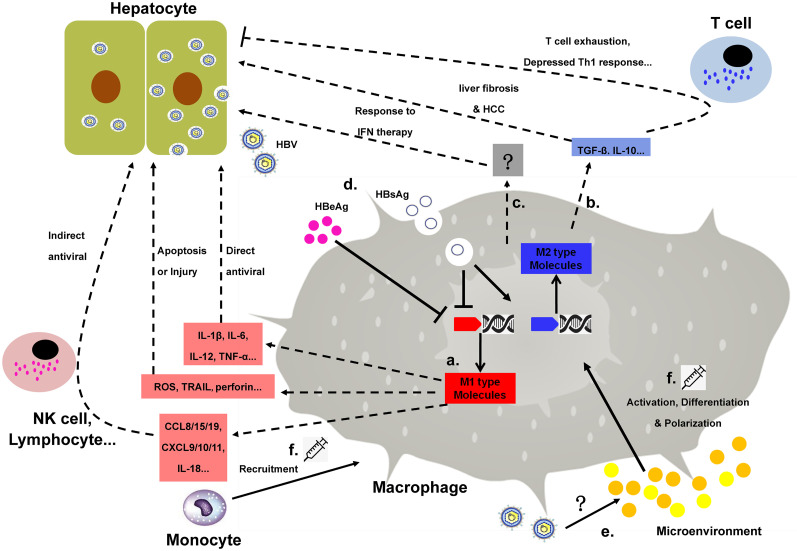Fig. 2. Macrophage involvement in HBV infection. The anti-HBV effect of macrophages is mediated mainly by pro-inflammatory cytokines inducing a direct antiviral response or molecules recruiting or activating other immune cells. Meanwhile, another group of M1 KCs produces molecules that may result in injury or apoptosis of the hepatocytes.
(a). Immunomodulatory mediators, such as IL-10 and TGF-β, are closely associated with suppressed antiviral T cell responses and/or end-stage HBV liver disease (b).Macrophages may also contribute to the inflammatory or anti-inflammatory liver microenvironment and, consequently, alter hepatic response to IFN treatment (c). The phenotype and function of macrophages can be modified by either HBV itself (d) or the microenvironment (e). Thus, the therapeutic strategies targeting macrophages in an HBV infection may aim at modulating macrophage polarization/phenotype, monocyte recruitment/activation and so on (f).

